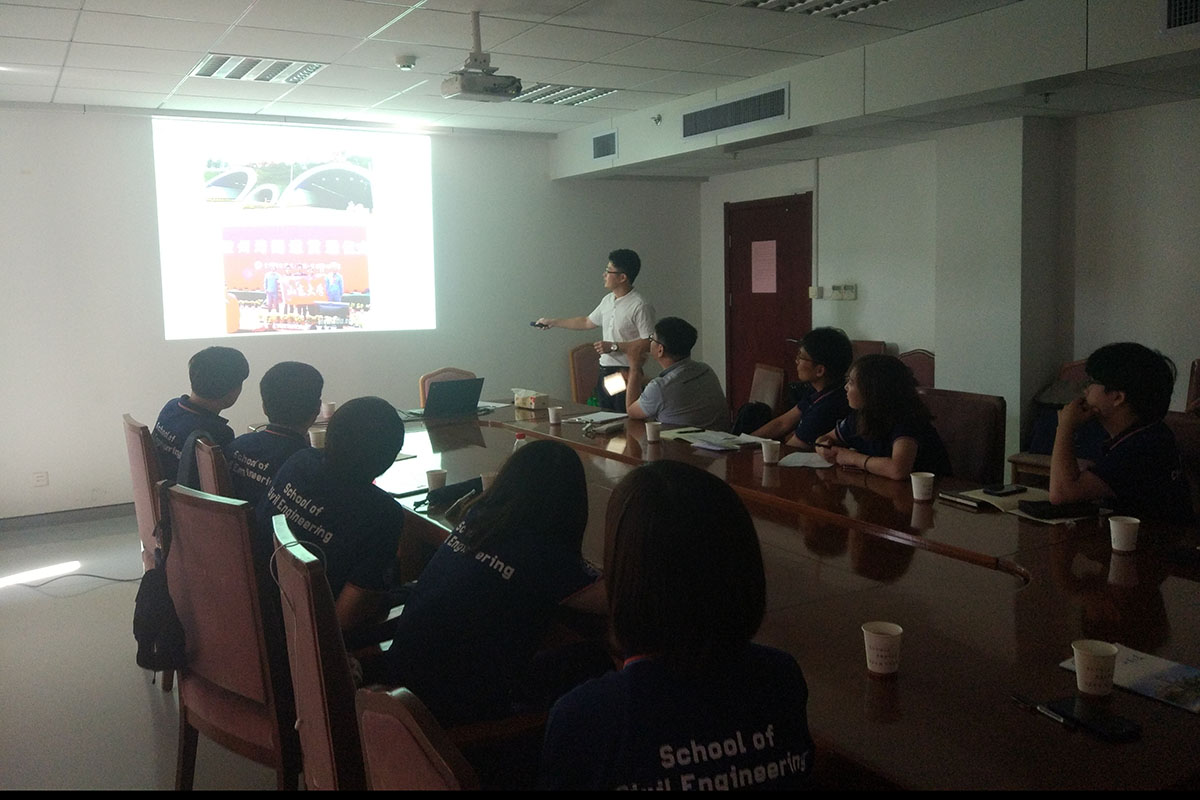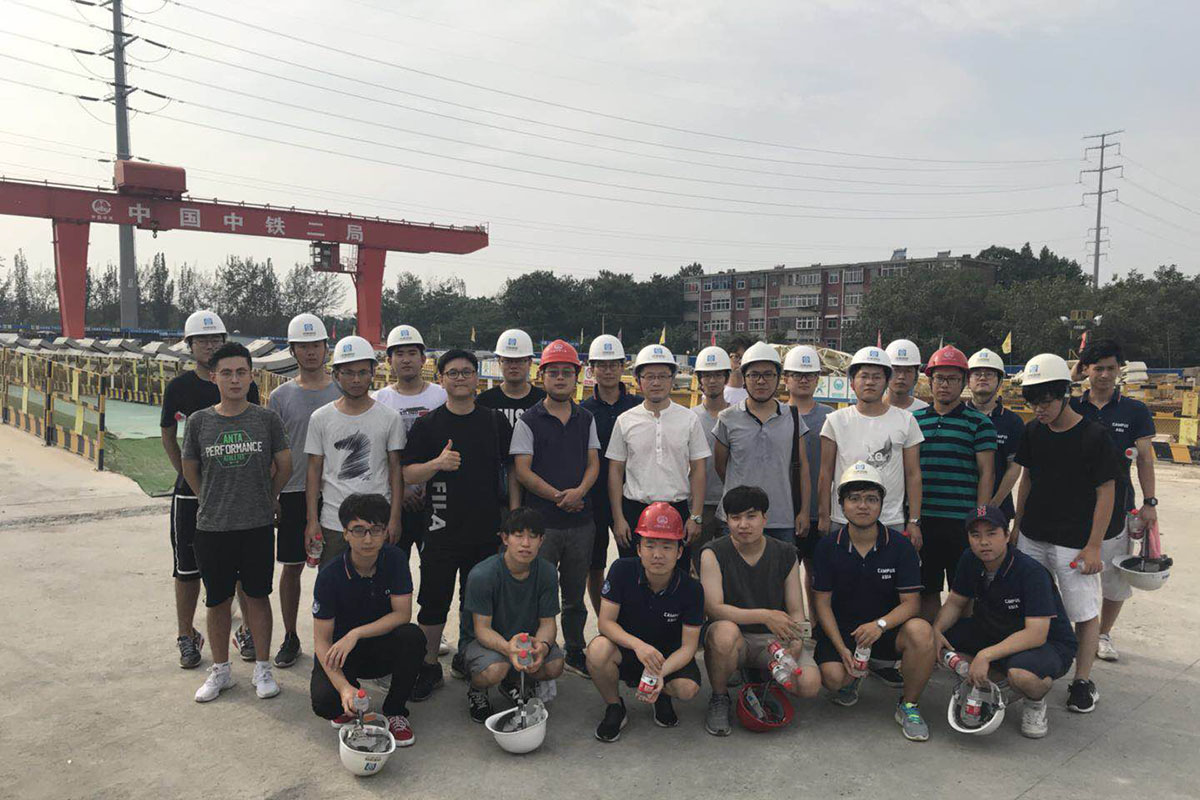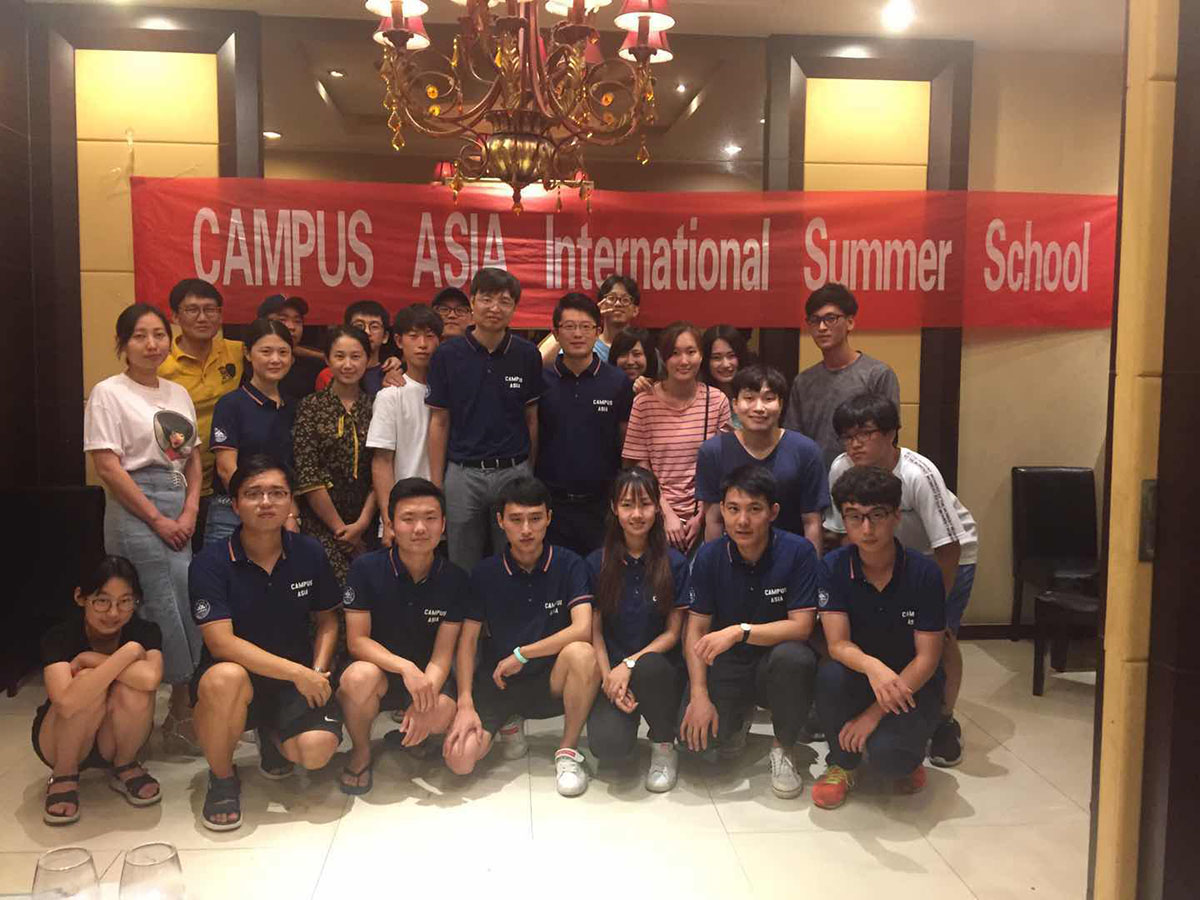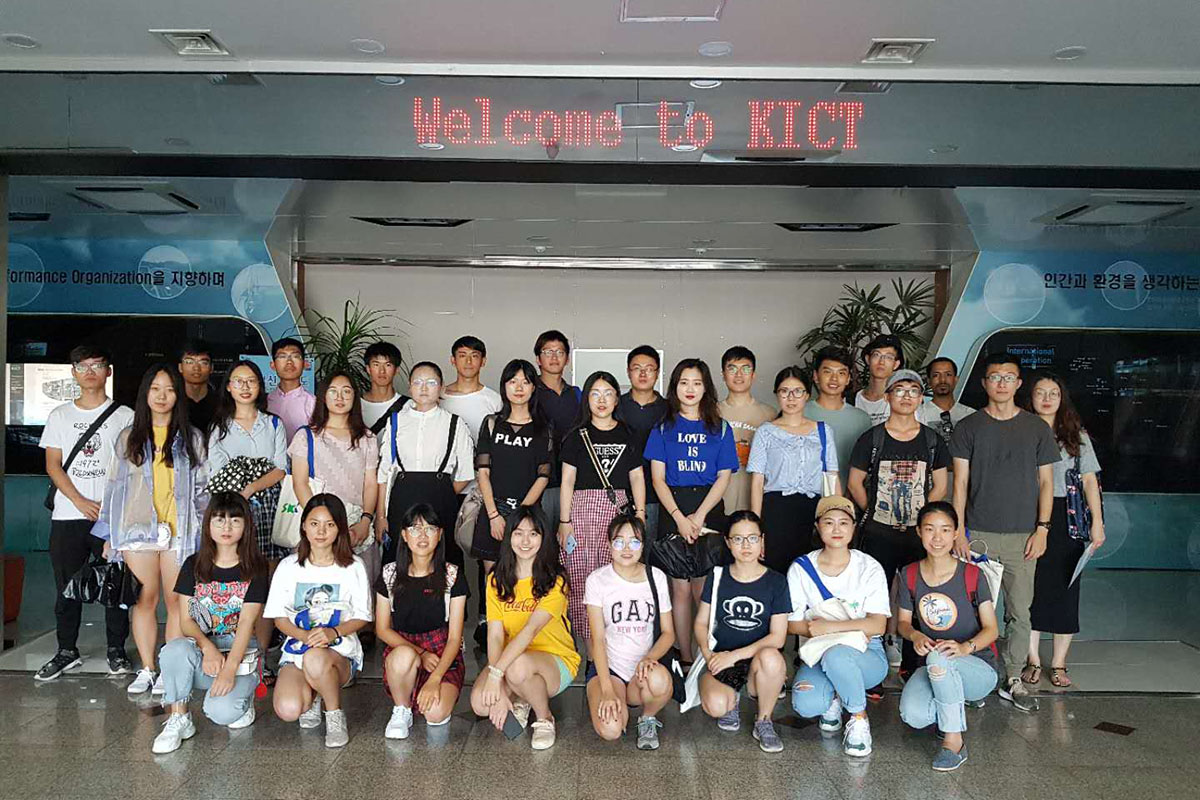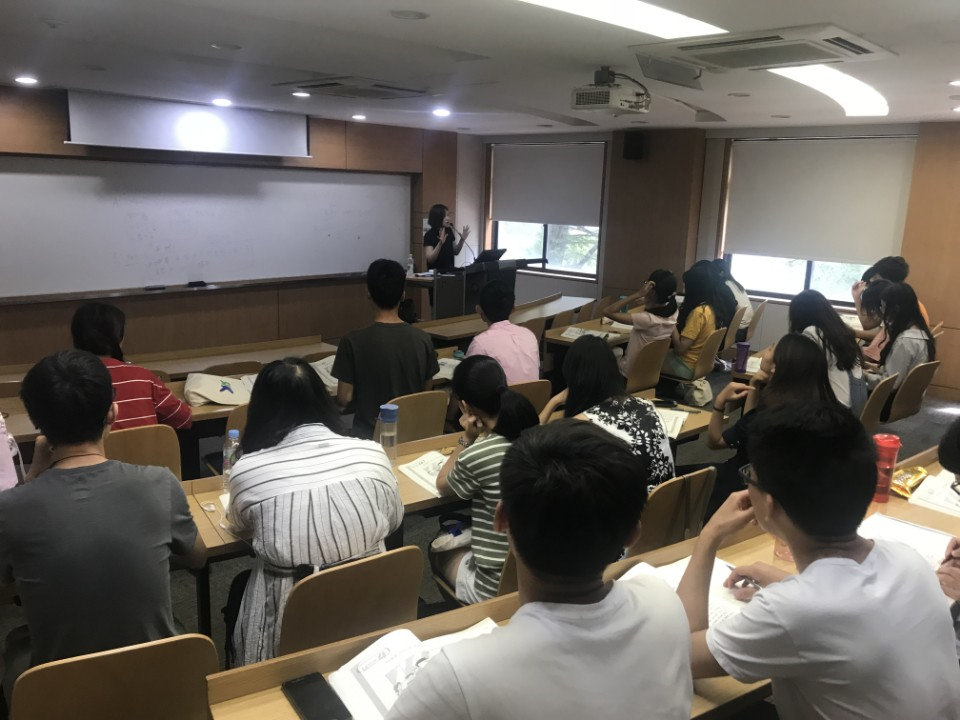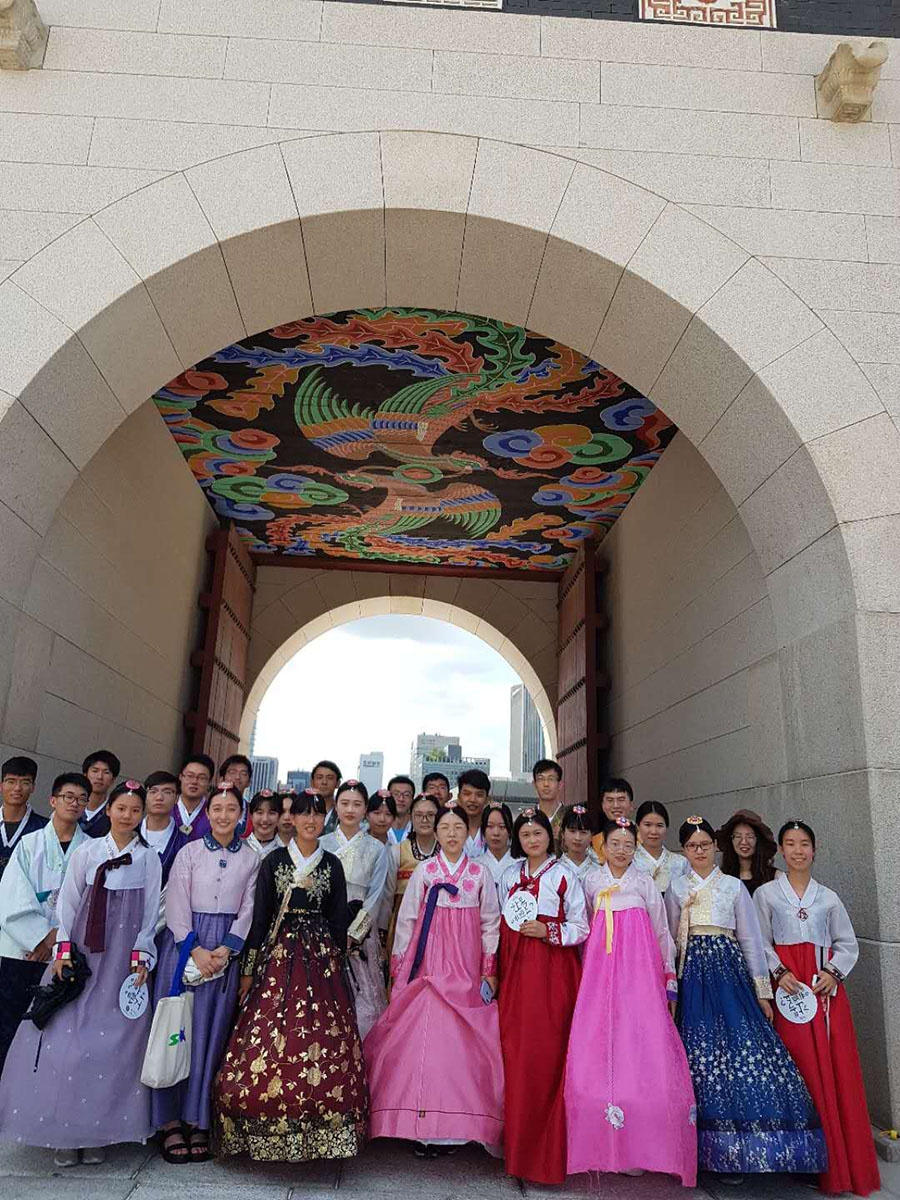Summer Schools were held in Sungkyunkwan University, Korea and Shandong University, China
Two-week summer schools were held from August 4 to 18, and from August 12 to 26, in Sungkyunkwan University, Korea and Shandong University, China. These summer schools are intended to give students opportunities to learn beforehand about the current situation and challenges that China and Korea are facing in managing infrastructure and to attract prospective graduate students who will participate in the program in 2019. From School of Engineering, Nagasaki University, nice undergraduate students (third and fourth graders in the Course of Civil and Environmental Engineering and the Course of Chemistry and Materials Engineering) participated in the summer schools.
At Sungkyunkwan University, Korea, the participating students attended special lectures on infrastructure as well as Korean language lessons. They also experienced Korean culture by wearing hanbok, Korean traditional costume. This is the second summer school hosted by Sungkyunkwan University as part of CAMPUS Asia project. One of the participating students in 2017 was actually motivated by this summer school to continue his study at graduate school and is currently studying at Shandong University, China, as part of the double degree program of this project. He surely shows a great effect of summer schools in encouraging students to study abroad for a longer period.
At Shandong University, China, the participating students stayed for one week each at Qingdao campus and at Jinan campus. Especially in the brand-new Qingdao campus just opened last year, all the facilities including classrooms and dormitories employ a novel design. The first week of the summer school at Qingdao campus was hosted by the School of Environmental Science. The second week was held in Jinan where the world heritage site is located. At Jinan campus, the School of Environmental Science and Engineering was responsible for taking care of the participating students. They experienced Tai Chi, tea ceremony, kite-making, calligraphy and other Chinese culture. They also joined a field trip to infrastructure construction sites such as tunnels. The students had a great opportunity to learn about the current situation of infrastructure maintenance from a different perspective than those in Japan
It is our hope that the participating students will take advantage of these precious experience to improve their English skills required as global human resources and to familiarize themselves with the student life in Korea and China. These efforts will eventually lead to an increasing number of outbound students from Nagasaki.
In the 3rd or 4th quarter, the participating students will submit their report and talk about their experience in an on-campus session. They are also expected to study English for the mandatory TOEIC tests scheduled in November. We look forward to hearing their comments and feedback on their experience.
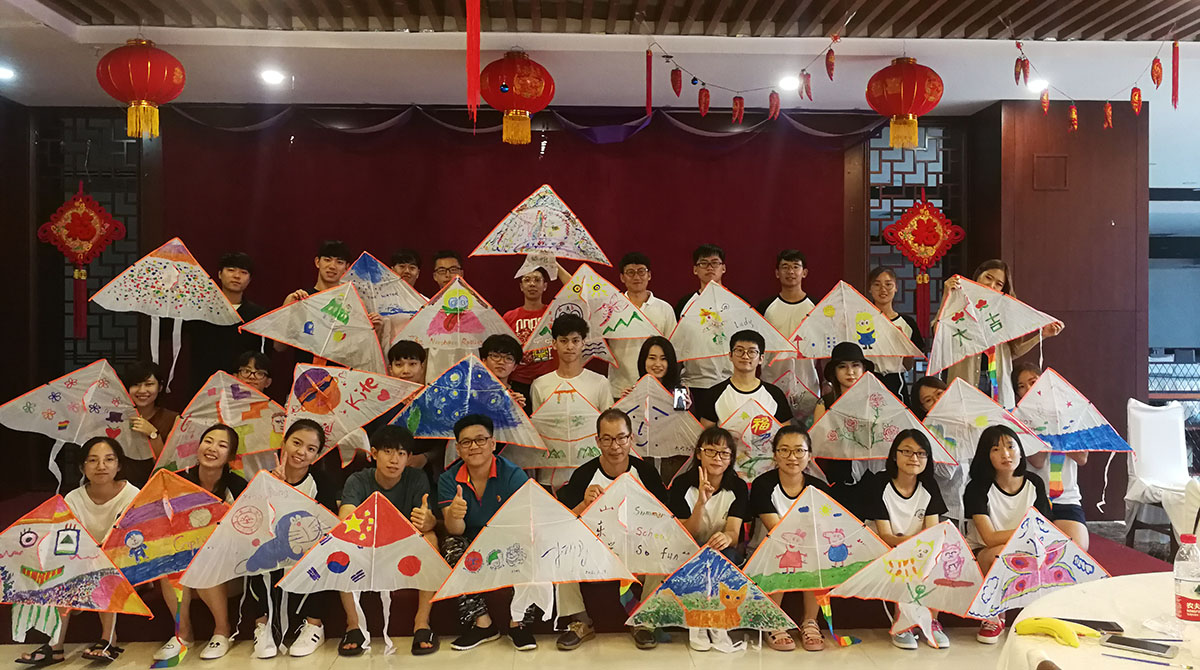
cof
